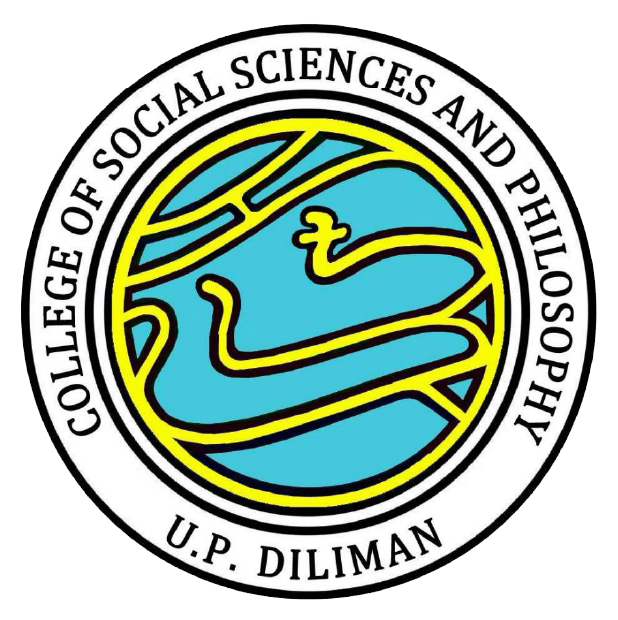Publications
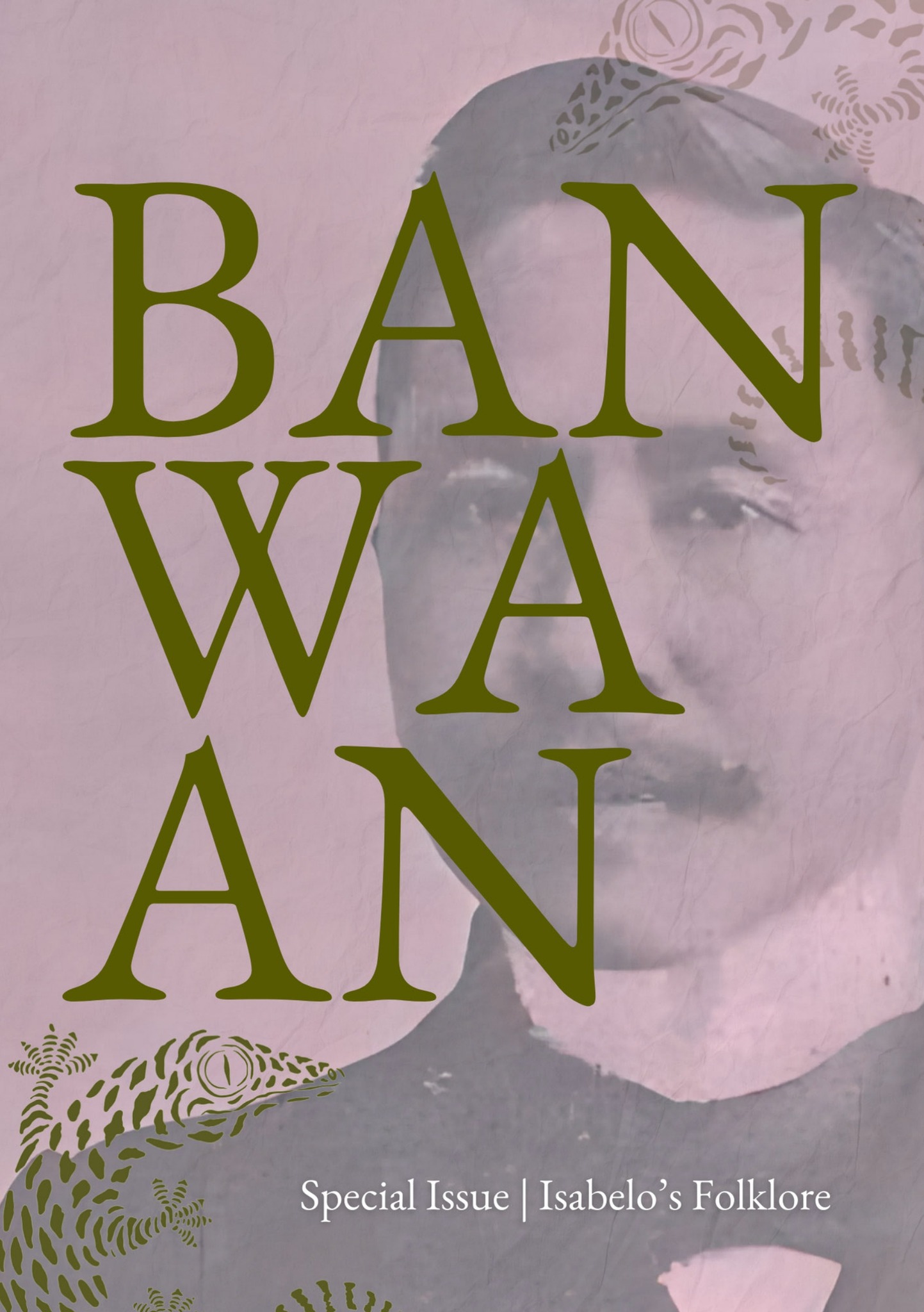
Is Sungka a Wargame? An Investigation into Conflict and Strategy within Pre-Colonial Philippine Ludic Culture
This paper intends to analyze the Philippine folk game known as sungka within the context of an indigenous culture of conflict encountered by the Spaniards in the 16th century. It explores parallelisms between a unique Philippine discourse on war and the game’s ludic dimension, primarily focused on its in-game lexicon and its rules of play. The paper argues that sungka reflected—if not reinforced—specific attitudes and approaches towards competitive activities, including conflict, due to several unique elements of the game: a) a focus on resource acquisition and circulation, b) relatively weak spatial considerations, and c) an ability to reverse prior setbacks in what is usually a drawn-out competition between two individuals. A correlation thus seems to exist between the strategic thinking extant in sungka and the indigenous methods of waging war. The paper is inspired by a gap in the works of Isabelo de los Reyes. His planned multi-volume work on Filipino folklore included a tome on what he referred to as “folk wit.” This volume would have included children’s games—such as sungka—but the currents of history swept Don Belong’s plans aside. This paper contributes to the legacy of his unfinished work by building on Mellie Leandicho Lopez’s studies of Filipino folk games and thus takes a tentative step towards connecting Philippine leisure culture to Philippine warfare.
sungka
folk game
wargame
warfare
strategy
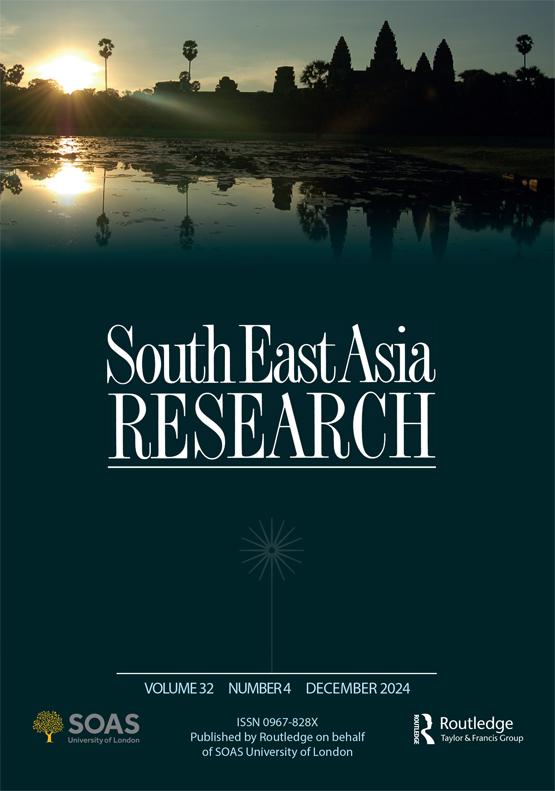
Juan Luna as nationalist painter and hero: examining configurations of public memory in the Philippines
On 12 June 2023, the Ayala Museum in the Philippines launched an exhibition entitled Splendor: Juan Luna, Painter as Hero for the commemoration of the 125th anniversary of the Philippines’ independence from Spain. It showcased Luna’s long-lost work from 1889, Hymen, oh Hyménée. Equally if not more important, however, was the exhibition’s aim to present Luna himself, his life and achievements, positioning him as a hero and protagonist in the nationalist struggle. The event was preceded by many other activities that commemorated Luna as a national hero. Using concepts derived from public memory studies, this paper examines the formation of public memory and its configurations. It delves into the historical context of the evolution of public memory and the institutions and individuals that contributed to this evolution. The paper argues that the public memory of Juan Luna owed to the nationalist reading of his achievements, promoted first by nationalist writers, then adopted and continued actively by the state. Meanwhile, private museums continue to shape public memory through exhibitions that attach Luna’s name to the national narrative. Moreover, public memory is continually shaped by popular memory that arises through ongoing commemorative activities in Luna’s locality.
Public memory
Philippines
Juan Luna
commemorations
paintings
museums
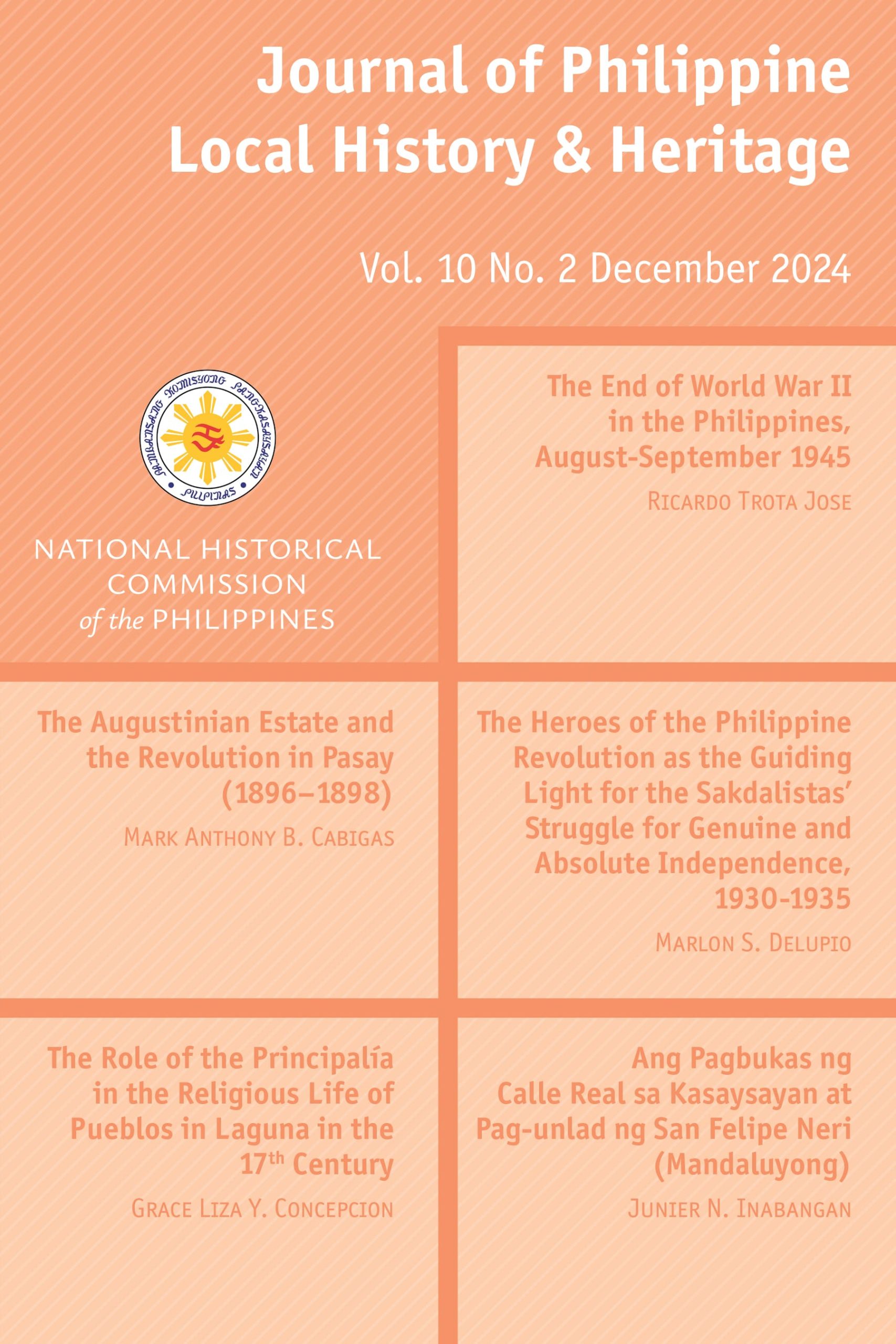
The End of World War II in the Philippines, August-September 1945
While the start of wars are well defined and documented, the actual end of wars are less clear. This paper looks into the processes by which World War II came to an end in the Philippines. Beyond the official cease fire declared on August 15, 1945, Japanese units in various parts of the Philippines surrendered at different dates, some more informally than others. The formal end of the war through the signing of surrender documents in Baguio was just one of many official ceremonies in the Philippines, carried out on different dates and places.

The Role of Principalia in the Religious Life of Pueblos in Laguna in the 17th Century
The foundation of pueblos in the province of Laguna began as early as 1571 in the Spanish colonial era as soon as the Spaniards ventured into Manila and the surrounding areas. The foundation of pueblos in native settlements around the lake of Bay was inextricably linked to the work of Augustinian and Franciscan missionaries. Credit has been given to them for instituting the pueblos. However, this would not have happened without the collaboration of the native elite, the principalía of Laguna. The natives of the pueblo through the principalía were responsible for sustaining the church and the work of the missionaries. They built the churches and funded their decorations, supported the missionaries, and worked in Laguna. The principalía therefore played a significant role in the establishment of Christianity and the propagation of Christian practices in the pueblo. However, this role did not mean an indiscriminate support of all the demands of the missionaries, leaving no latitude for the principalía to negotiate that support. There were times when the principalía also challenged the missionaries and directed the course of religious life in their pueblos. This paper examines their role in this dynamic in the 17th century, the time that saw the establishment of Christianity in pueblos and the natives’ gradual assimilation of the new religion.
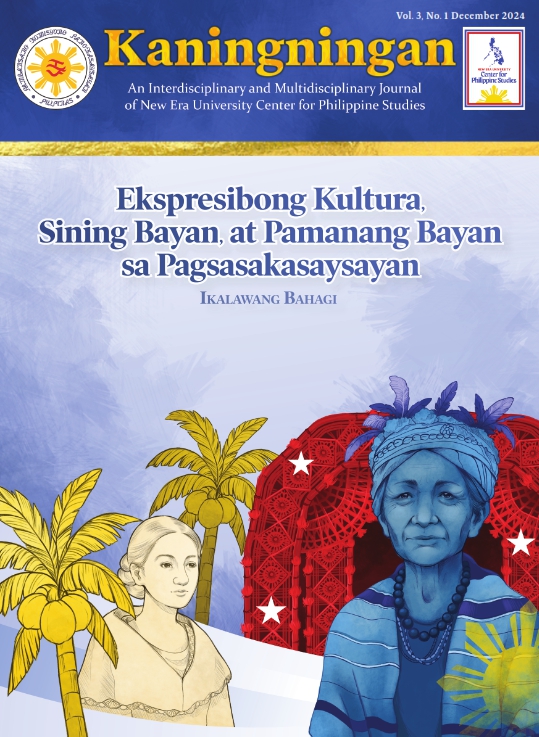
Saplot: Isang historiograpikong pagsipat sa pamanang pangkasuotan at modang sining ng mga Pilipino
Ang papel na ito ay naglalayong magsuri sa kahalagahan ng saplot o kasuotan sa kabuuan bilang isang anyo ng pamanang kultural at sining ng mga Pilipino. Sa pamamagitan ng isang historiograpikal na pagsipat, tatalakayin sa papel ang pangkasaysayang kahalagahan kaugnay ng pagbabago at pag-unlad ng tradisyon ng pananamit at istilo sa iba’t ibang panahon sa kasaysayan ng Pilipinas.
Nais na ipakita ng may-akda sa papel ang isang historiograpikong pag-unawa at bigyang halaga ang kasuotan sa pangkalahatan bilang isang cultural currency at kaparaanan sa paglikha ng panlipunang identidad ng mga Pilipino. Sa pamamagitan ng gagawing pagsusuri sa pamanang saplot o kasuotan at platapormang artistiko ng moda sa partikular, titingnan sa papel ang tradisyon ng pananamit sa nakaraan hindi lamang bilang ekspresyong kultural, kundi isang mahalagang batis ng impormasyon sa pagsasakasaysayang Pilipino.
Sa pag-aaral, ang mga di-kumbensyonal na mga batis na ginamit mula sa UP College of Home Economics, National Museum of the Philippines, at Aga Khan Museum ng MSU – sa Lungsod ng Marawi, ay walang pag-aalinlangang repositoryo o baul ng mga pangmodang ekspresyon, di dokumentaryong mga batis, at nagtatampok kung gayon ng ideyang meta-komunikasyon na dinalumat ni Gregory Bateson at ng meta-naratibo na ipinalaganap naman halimbawa sa kabilang dako nina E.P. Thompson, Michel Foucault, at Jean Scott. Mahalaga ang paghahango ng mga meta-mensahe sa pagsasakasaysayan gamit ang platapormang modang sining ng mga Pilipino.
Sa akda, ginamit na conceptual tool ang linggwistiko konstrak ng “ka-suot-an” upang bigyang halaga ang ideya ng “saplot” sa katawan na organikong nakaugnay sa gawain ng mga Pilipino ng “pagsu-suot,” “pagbi-bihis,” at “pagda-damit.” Makabuluhan ang gawaing ito sa pagsilip sa pagpapasundayag moda upang makabuo ng kaalamang pangkasaysayan mula sa nasabing pamanang saplot o kasuotan at modang sining. Sa pag-aaral, ginamit ng may akda ang Teorya ng Pamanang Kultural (TPT) upang sipatin ang kahalagahan ng kasuotan bilang bahagi ng yamang kultural at pinaghanguan ng artistikong platapormang moda na ginamit ng mga Pilipino. Sa pamamagitan TPT, napansin sa isinagawang pag-aaral ang saysay ng pagkakaugnay ng kasuotan sa tradisyon, kultura, at identidad ng mga Pilipino sa paghahango ng mga meta-mensaheng mapagsasampayan ng mga meta-naratibong pangkasaysayan.
Nais na ipakita ng may-akda sa papel ang isang historiograpikong pag-unawa at bigyang halaga ang kasuotan sa pangkalahatan bilang isang cultural currency at kaparaanan sa paglikha ng panlipunang identidad ng mga Pilipino. Sa pamamagitan ng gagawing pagsusuri sa pamanang saplot o kasuotan at platapormang artistiko ng moda sa partikular, titingnan sa papel ang tradisyon ng pananamit sa nakaraan hindi lamang bilang ekspresyong kultural, kundi isang mahalagang batis ng impormasyon sa pagsasakasaysayang Pilipino.
Sa pag-aaral, ang mga di-kumbensyonal na mga batis na ginamit mula sa UP College of Home Economics, National Museum of the Philippines, at Aga Khan Museum ng MSU – sa Lungsod ng Marawi, ay walang pag-aalinlangang repositoryo o baul ng mga pangmodang ekspresyon, di dokumentaryong mga batis, at nagtatampok kung gayon ng ideyang meta-komunikasyon na dinalumat ni Gregory Bateson at ng meta-naratibo na ipinalaganap naman halimbawa sa kabilang dako nina E.P. Thompson, Michel Foucault, at Jean Scott. Mahalaga ang paghahango ng mga meta-mensahe sa pagsasakasaysayan gamit ang platapormang modang sining ng mga Pilipino.
Sa akda, ginamit na conceptual tool ang linggwistiko konstrak ng “ka-suot-an” upang bigyang halaga ang ideya ng “saplot” sa katawan na organikong nakaugnay sa gawain ng mga Pilipino ng “pagsu-suot,” “pagbi-bihis,” at “pagda-damit.” Makabuluhan ang gawaing ito sa pagsilip sa pagpapasundayag moda upang makabuo ng kaalamang pangkasaysayan mula sa nasabing pamanang saplot o kasuotan at modang sining. Sa pag-aaral, ginamit ng may akda ang Teorya ng Pamanang Kultural (TPT) upang sipatin ang kahalagahan ng kasuotan bilang bahagi ng yamang kultural at pinaghanguan ng artistikong platapormang moda na ginamit ng mga Pilipino. Sa pamamagitan TPT, napansin sa isinagawang pag-aaral ang saysay ng pagkakaugnay ng kasuotan sa tradisyon, kultura, at identidad ng mga Pilipino sa paghahango ng mga meta-mensaheng mapagsasampayan ng mga meta-naratibong pangkasaysayan.
Historiograpiya
Kasuotan sa Pagsasakasaysayan
Meta-komunikasyon
Meta-mensahe
Meta-naratibo
Pagsasakasaysayang Pilipino
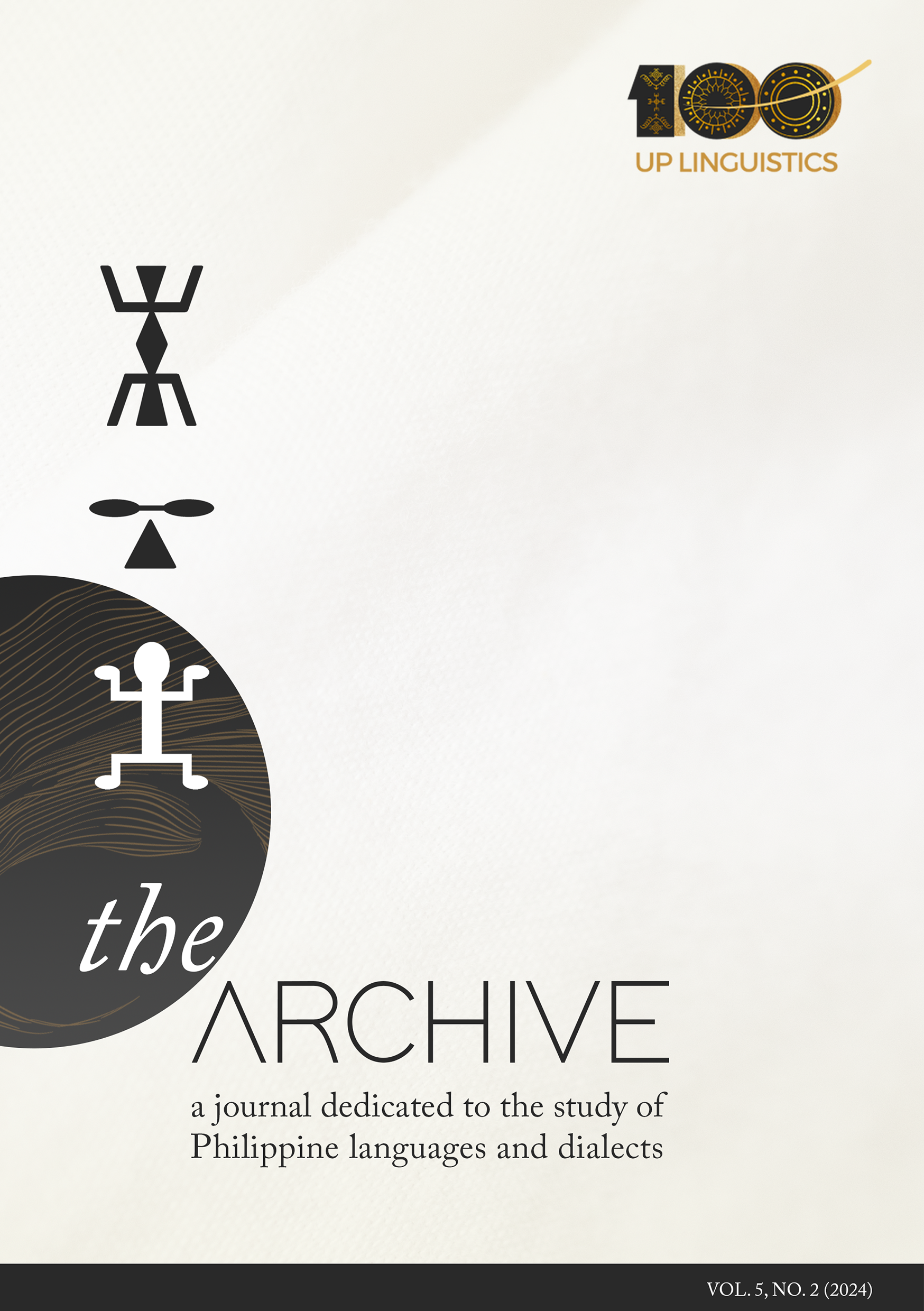
Proto-Modern Astronomy in the Philippines: A History of Words, 10th-19th Century
“Proto-modern astronomy” in the Philippines pertains either to an astronomical paradigm or a historical phase that mediates the “pre-modern” (i.e., indigenous Austronesian, since the 3500 BCE) and the “modern” (i.e., brought about by the Eurasian “scientific revolution,” 16th century CE). Among the Philippine communities, the existence of proto modern astronomy implies linguistic contact and socio-cultural interaction with Sanskrit, Arabic, and Malay speakers. Moreover, it shows the Philippine reception of foreign astronomical knowledge and practices before the advent of Euro-American colonialism.
To isolate the proto-modern elements, a discussion on pre-modern Austronesian astronomy is provided. Basic astronomical words can be reconstructed into the following protoforms: PAn *laŋiC ‘sky, heaven,’ PAn *qajaw ‘day, sun,’ PMP *qalejaw ‘day, sun,’ PAn *bulaN ‘moon,’ PAn *bituqen ‘star,’ PMP *talaq₁ ‘star,’ PPh *bulalákaw₂ ‘meteor, shooting star,’ PPh *dúlis ‘meteor, shooting star,’ and PPh *dúlit ‘meteor, shooting star.’ By identifying the foundational elements, we can now recognize the latter additions, marked by Sanskrit-Arabic influences through Malay. These additions appear in the form of words for ‘astral science/scientist,’ ‘heaven/hell,’ ‘deity/spirit,’ ‘eclipse,’ ‘Milky Way,’ ‘comet,’ ‘fixed star,’ and ‘planet,’ as well as cosmological, mathematical, and astrological ideas and practices. The period of the study begins in the 10th century CE, the time of the Laguna Copperplate Inscription, which contains the important word jyotisha ‘astral science; astrologer’ and ends in the 19th century, when the Spanish intrusion of the Pulangi Valley, mainly through the Jesuit missionaries, led to the documentation of Maguindanaon, whose astronomical loanwords were clearly from Sanskrit-Malay and Arabic-Malay.
To isolate the proto-modern elements, a discussion on pre-modern Austronesian astronomy is provided. Basic astronomical words can be reconstructed into the following protoforms: PAn *laŋiC ‘sky, heaven,’ PAn *qajaw ‘day, sun,’ PMP *qalejaw ‘day, sun,’ PAn *bulaN ‘moon,’ PAn *bituqen ‘star,’ PMP *talaq₁ ‘star,’ PPh *bulalákaw₂ ‘meteor, shooting star,’ PPh *dúlis ‘meteor, shooting star,’ and PPh *dúlit ‘meteor, shooting star.’ By identifying the foundational elements, we can now recognize the latter additions, marked by Sanskrit-Arabic influences through Malay. These additions appear in the form of words for ‘astral science/scientist,’ ‘heaven/hell,’ ‘deity/spirit,’ ‘eclipse,’ ‘Milky Way,’ ‘comet,’ ‘fixed star,’ and ‘planet,’ as well as cosmological, mathematical, and astrological ideas and practices. The period of the study begins in the 10th century CE, the time of the Laguna Copperplate Inscription, which contains the important word jyotisha ‘astral science; astrologer’ and ends in the 19th century, when the Spanish intrusion of the Pulangi Valley, mainly through the Jesuit missionaries, led to the documentation of Maguindanaon, whose astronomical loanwords were clearly from Sanskrit-Malay and Arabic-Malay.
Philippine astronomy
proto-modern astronomy
ethnoastronomy
Austronesian languages
Sanskrit
Arabic
Malay
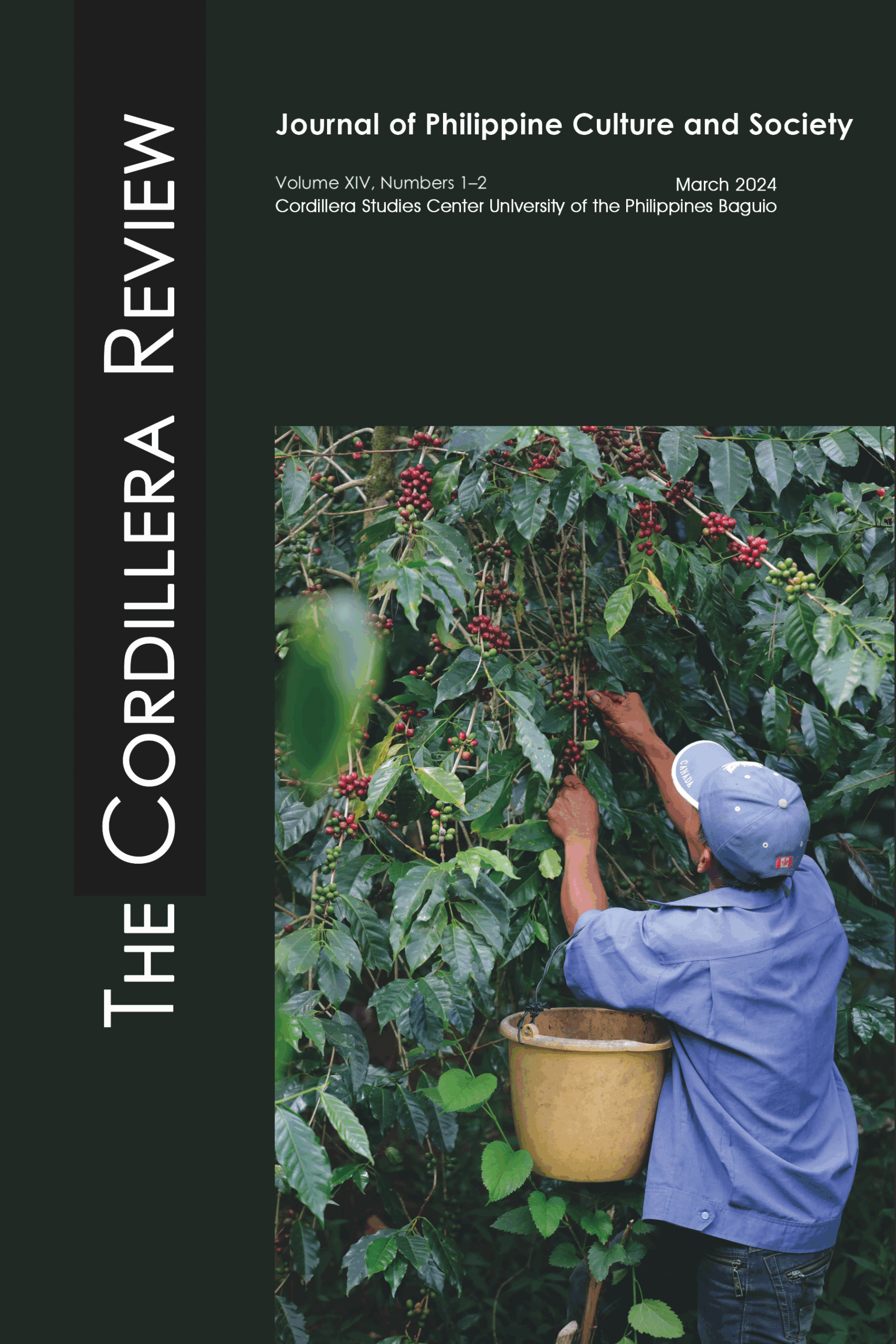
Pleasure Trail: American Land Travels to Baguio, 1900s to 1920s
During the American colonial period in the Philippines, Americans from different backgrounds made the upland trip to Baguio, the sole colonial hill station in the colony, primarily because of its cooler climate. Through an analysis of American travel accounts, I will show that the pace of traveling to Baguio had a particularly profound influence on American travelers’ multisensory experiences while in transit. Before the Benguet Road was completed and opened in 1905, travelers endured slow and difficult travel conditions, so they saw themselves as resolute individuals who were worthy of the sensory delights that the highland environment offered. When the Benguet Road was opened and motorized vehicle transportation to Baguio was introduced shortly afterward, the faster pace of travel made American travelers captivated by the experiences of an easier and more sensorily overwhelming climb to the hill station.
Baguio
American colonial period
travel writing
highland-lowland
mobilities

A Dependent Empire: The Military Activities of the Filipino Natives in Spanish Taiwan, 1589-1642
In 1586, Governor Santiago de Vera (1584-1590) wrote a request to Felipe II of Spain for the pacification of Isla Hermosa (Formosa; modern-day Taiwan), and the King responded by instructing Governor Perez Dasmariñas to pacify the island for the benefit of its people and the safety of the Spaniards in Manila. However, no military expedition commenced in the sixteenth century; and only in 1626 did the governor of Manila send a force to occupy North Hermosa as a response to the Dutch occupation of the South. Half, if not most soldiers that were sent to occupy Hermosa were local soldiers of the archipelago. These indigenous soldiers, who participated in the establishment and maintenance of Spanish Taiwan from 1626 to 1642 when they were expelled by the Dutch, will be the focus of this paper. Examining the Spanish use and mobilization of local soldiers to expand the Spanish empire in Asia will serve as the objective of this research.
Spanish Taiwan
Isla Hermosa
Native Soldiers
Pampangans
Formosa
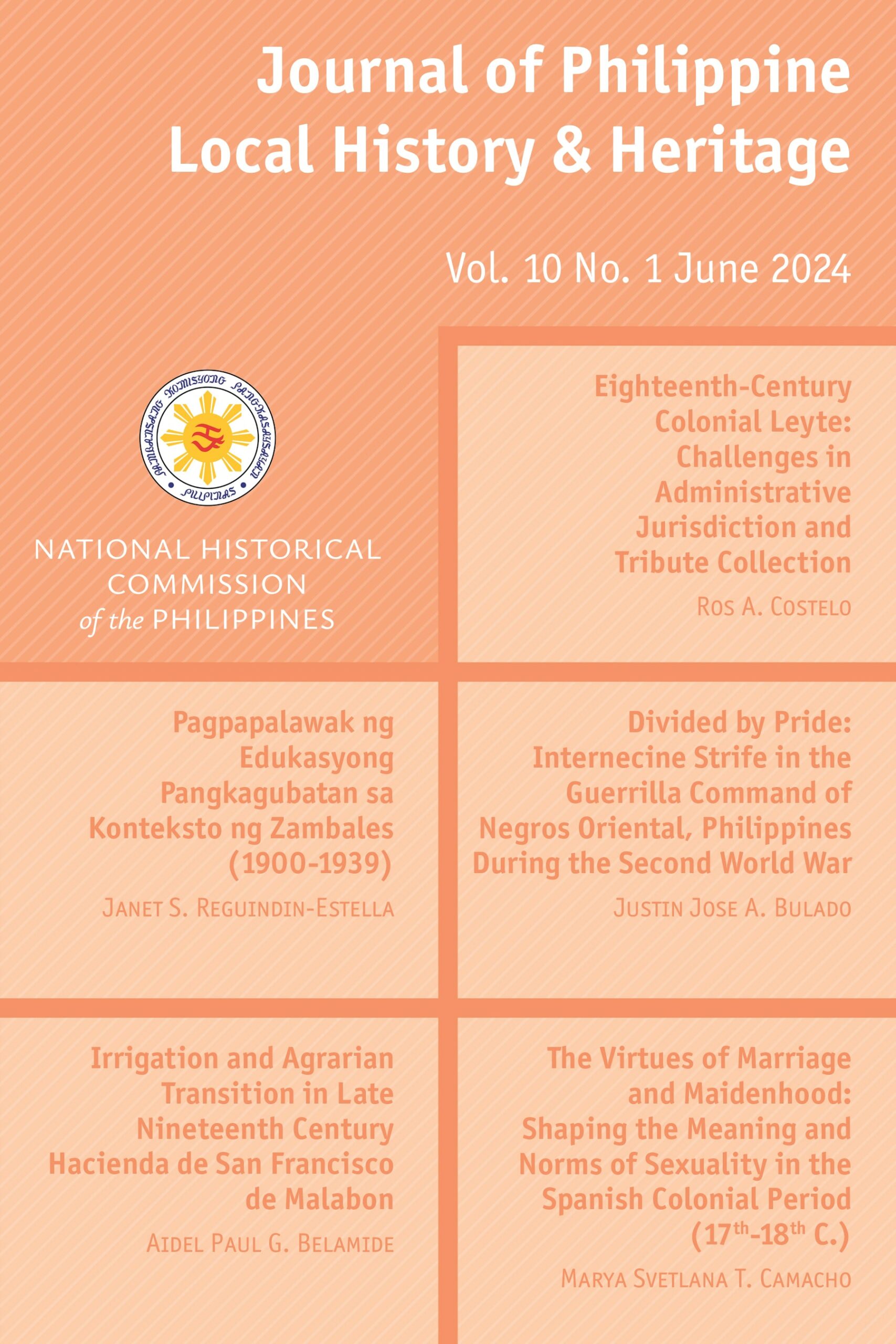
Pagpapalawak ng Edukasyong Pangkagubatan sa Konteksto ng Zambales (1900-1930)
Kabilang sa mga kilalang pananaliksik tungkol sa kasaysayan ng polisiyang pangkagubatan sa Pilipinas ang mga pag-aaral nina Ma. Florina Orillos, Inspeccion General de Montes: Isang Institusyonal na Kasaysayan (1999); Ma. Luisa de Leon Bolinao, Perhutanan: Mga Patakarang Kolonyal Hinggil sa Kagubatan ng Malaya at Filipinas, 1900-1940 (2005); at ni Nathan E. Roberts, U.S. Forestry in the Philippines: Environment, Nationhood, and Empire, 1900-1937 (2014). Gayunpaman, pawang sumasaklaw ang mga nasabing pag-aaral sa pambansang konteksto ng mga polisiyang pangkagubatan. Mayroong puwang kung gayon sa pagsusuri ng mga usaping pangkagubatan sa lokal na konteksto ng mga bayan at lalawigan.
Layunin ng artikulong ito na punan ang nasabing puwang sa pamamagitan ng pagsusuri ng kasaysayang pangkagubatan sa halimbawang kaso ng Zambales. Nakatuon ang paksa sa nasabing lalawigan kung saan itinayo ang isa sa mga unang istasyong pangkagubatan sa unang taon ng kolonyal na pamahalaang Amerikano. Gayundin, tuon ng pananaliksik ang muling paggugubat at edukasyong pangkagubatan na naging malawak na programa ng Kagawaran ng Paggugubat at kung papaano naging bahagi sa mga programang ito ang lalawigan ng Zambales. Gamit ang mga opisyal na ulat at mga kaugnay na batis, sasaklawin ng pag-aaral na ito ang taong 1900 kung kailan itinatag ang Kagawaran ng Paggugubat (Forestry Bureau) hanggang 1939 kung kailan huling nagpatupad ng programang pangkagubatan ang pamahalaan bago sumiklab ang Ikalawang Digmaang Pandaigdig.
Layunin ng artikulong ito na punan ang nasabing puwang sa pamamagitan ng pagsusuri ng kasaysayang pangkagubatan sa halimbawang kaso ng Zambales. Nakatuon ang paksa sa nasabing lalawigan kung saan itinayo ang isa sa mga unang istasyong pangkagubatan sa unang taon ng kolonyal na pamahalaang Amerikano. Gayundin, tuon ng pananaliksik ang muling paggugubat at edukasyong pangkagubatan na naging malawak na programa ng Kagawaran ng Paggugubat at kung papaano naging bahagi sa mga programang ito ang lalawigan ng Zambales. Gamit ang mga opisyal na ulat at mga kaugnay na batis, sasaklawin ng pag-aaral na ito ang taong 1900 kung kailan itinatag ang Kagawaran ng Paggugubat (Forestry Bureau) hanggang 1939 kung kailan huling nagpatupad ng programang pangkagubatan ang pamahalaan bago sumiklab ang Ikalawang Digmaang Pandaigdig.
Kagawaran ng Paggugubat
edukasyong pangkagubatan
siyentipikong kasanayan
administratibong pamamahala
kolonyalismong Estados Unidos
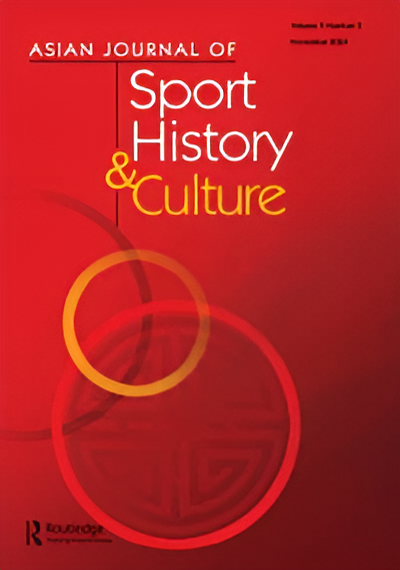
Evaluating the Origins of Project Gintong Alay and Philippine Sports’ ‘Golden Years’ Under the Marcos Administration, 1978–1982
Current conversations around Philippine sports treat the 1980s as a ‘golden era’ of sporting achievement due to a marked increase in medals won internationally under Project: Gintong Alay, the Marcosregime’s elite sport development (ESD) program. Yet the nostalgia has yet to generate a critical assessment of the policy factors behind the program’s success. This article examines the meso-level policy factors and macro-level contexts that contributed to the Philippine sports achievements in the 1980s. Historical analysis of newspapers, magazines, and presidential documents between 1978and 1982 reveal how Gintong Alay’s success can be attributed to three (3) broad policies: 1) efficient funding allocation that prioritized sports with higher potential medal returns, 2) provisions for athletes’ basic needs in training camps, and 3) continuous exposure of elite athletes to international competition. However, the project’s success cannot be separated from the era’s legacy and plunder. This article also argues that the conditions for the possibility of elite sport success rested on the centralization of authority under the executive director of Gintong Alay– presidential nephew Michael Keon – and the ill-gotten wealth of Marcos cronies who were tasked to finance the decade of Philippinesport’s revival
Gintong Alay
Ferdinand Marcos
Michael Keon
martial law
Philippine sports
| Title | Journal | Faculty Involved | Keywords | Year |
|---|---|---|---|---|
| "More Calories, More Protein, More Progress": The Nutribun and the Politics of Nostalgia of the Marcos Regime | Philippine Studies: Historical and Ethnographic Viewpoints | Francisco Jayme Paolo A. Guiang | Nutrition, Ferdinand E. Marcos, Nostalgia, International Aid, Health Communication | 2025 |
| Law Between Two Empires: Marriage and Divorce in the Evolving Philippine Legal System under the Early US colonial Period, 1898–1917 | South East Asia Research | Lorenz Timothy Barco Ranera | Legal history, marriage, divorce, Supreme Court, mixed legal system, Philippines | 2025 |
| Scientific Textualizations of Tropical Cyclones in the Philippines: The Scientific Activities of the Observatorio Meteorológico de Manila (OMM) and Philippine Weather Bureau (PWB), 1860s-1940s | History of Meteorology | Kerby C. Alvarez, Ph.D. | typhoons, Philippine Weather Bureau, Philippines, Observatorio Meteorológico de Manila, tropical cyclones | 2025 |
| From Religious to Political Ideologies: Historicizing Geopolitical Encounters and Their Impact on International Order in the Modern World | Asia-Pacific Dialogue: Advancing Cooperation in a New Era | Vicente C. Villan, Ph.D. | Historical Context, Geopolitics, Ideological Systems, International Relations, Empire Formation | 2025 |
| Colonial Integration: The Native Soldiers under Governor Sebastián Hurtado de Corcuera, 1635-1640 (Integración colonial: Los soldados indígenas bajo el gobierno de Sebastián Hurtado de Corcuera, 1635-1640) | Estudios de Historia Novohispana | Moises Levi Orlino | Sebastián Hurtado de Corcuera, native soldiers, Pampango, Tagalog, Chinese insurrection | 2025 |
| ‘Balatyagon, Huya, kag Kabalaslan’: Ang Kampanya ng mga Pilipinong Baptist tungo sa Pagsasarili at Pagsasakapangyarihan, 1922–1935 | Malay: Internasyonal na Journal sa Araling Filipino | Kristoffer R. Esquejo, Ph.D. | ABFMS, CPBC, Filipinisasyon, Iskismong Panrelihiyon, Kinagisnang Sikolohiya | 2025 |
| Recording Maladies and Remedies: Isabelo de los Reyes and Folk Medicine in Late Nineteenth Century Philippines | Banwaan: The Philippine Journal of Folklore | Joseph Adrian D. Afundar | folk medicine, El Folk-Lore Filipino, Isabelo de los Reyes, folklore, history of medicine | 2025 |
| Isabelo’s Nature and Weather: Exploring Isabelo de los Reyes’ Notes on the Physical Environment in the El Folk-Lore Filipino (1889) | Banwaan: The Philippine Journal of Folklore | Kerby C. Alvarez, Ph.D. | Isabelo de los Reyes, physical environment, folk knowledge, local history, knowledge production | 2025 |
| Authoring the Folk | Banwaan: The Philippine Journal of Folklore | Emmanuel Jayson V. Bolata | Leona Florentino, Isabelo de los Reyes, folk literature, Ilocano literature, author | 2025 |
| Legal Codification of Family-Related Filipino Proverbs (Salawikain) in the Civil Code of the Philippines, 1947-1949 | Banwaan: The Philippine Journal of Folklore | Lorenz Timothy Barco Ranera | folklore, proverbs, legal history, family law, Philippines | 2025 |
| Is Sungka a Wargame? An Investigation into Conflict and Strategy within Pre-Colonial Philippine Ludic Culture | Banwaan: The Philippine Journal of Folklore | Micah Jeiel R. Perez | sungka, folk game, wargame, warfare, strategy | 2025 |
| Juan Luna as nationalist painter and hero: examining configurations of public memory in the Philippines | South East Asia Research | Grace Liza Y. Concepcion, Ph.D. | Public memory, Philippines, Juan Luna, commemorations, paintings, museums | 2025 |
| The End of World War II in the Philippines, August-September 1945 | Journal of Philippine Local History & Heritage | Ricardo T. Jose, Ph.D. | 2024 | |
| The Role of Principalia in the Religious Life of Pueblos in Laguna in the 17th Century | Journal of Philippine Local History & Heritage | Grace Liza Y. Concepcion, Ph.D. | 2024 | |
| Saplot: Isang historiograpikong pagsipat sa pamanang pangkasuotan at modang sining ng mga Pilipino | NEU Kaningningan Journal: An Interdisciplinary and Multidisciplinary Journal of New Era University Center for Philippine Studies | Vicente C. Villan, Ph.D. | Historiograpiya, Kasuotan sa Pagsasakasaysayan, Meta-komunikasyon, Meta-mensahe, Meta-naratibo, Pagsasakasaysayang Pilipino | 2024 |
| Proto-Modern Astronomy in the Philippines: A History of Words, 10th-19th Century | The Archive | Emmanuel Jayson V. Bolata | Philippine astronomy, proto-modern astronomy, ethnoastronomy, Austronesian languages, Sanskrit, Arabic, Malay | 2024 |
| Pleasure Trail: American Land Travels to Baguio, 1900s to 1920s | The Cordillera Review: Journal of Philippine Culture and Society | Carlos Joaquin R. Tabalon | Baguio, American colonial period, travel writing, highland-lowland, mobilities | 2024 |
| A Dependent Empire: The Military Activities of the Filipino Natives in Spanish Taiwan, 1589-1642 | TALA: An Online Journal of History | Moises Levi Orlino | Spanish Taiwan, Isla Hermosa, Native Soldiers, Pampangans, Formosa | 2024 |
| Pagpapalawak ng Edukasyong Pangkagubatan sa Konteksto ng Zambales (1900-1930) | Journal of Philippine Local History and Heritage | Janet S. Reguindin-Estella, Ph.D. | Kagawaran ng Paggugubat, edukasyong pangkagubatan, siyentipikong kasanayan, administratibong pamamahala, kolonyalismong Estados Unidos | 2024 |
| Evaluating the Origins of Project Gintong Alay and Philippine Sports’ ‘Golden Years’ Under the Marcos Administration, 1978–1982 | Asian Journal of Sport History & Culture | Micah Jeiel R. Perez | Gintong Alay, Ferdinand Marcos, Michael Keon, martial law, Philippine sports | 2024 |
| Eighteenth-Century Colonial Leyte: Challenges in Administrative Jurisdiction and Tribute Collection | Journal on Philippine Local History and Heritage | Ros A. Costelo, Ph.D. | Leyte, eighteenth-century Leyte, colonial administrative jurisdiction, tribute, indigenous resistance, division of province | 2024 |
| A History of Institutional Meteorology in the Philippines, 1865-1972 | Oxford Research Encyclopedia of Climate Science | Kerby C. Alvarez, Ph.D. | Observatorio Meteorológico de Manila, Philippine Weather Bureau, meteorology, institutional meteorology, Jesuit scientists, Filipino scientists | 2024 |
| Revisiting Alzona: Internationalism in Philippine National Education (1917–1961) | Historical Bulletin | Micah Jeiel R. Perez | Encarnacion Alzona, Education, Nationalism, Internationalism | 2023 |
| Si Dante L. Ambrosio at ang Kasaysayan ng Etnoastronomiyang Pilipino, 1992–2010 (Dante L. Ambrosio and the History of Philippine Ethnoastronomy, 1992–2010) | Historical Bulletin | Emmanuel Jayson V. Bolata | Dante L. Ambrosio, etnoastronomiya, balatik, kilusang manggagawa, kapaligiran | 2023 |
| Pagsasakasaysayan ng Klima, Kalangitan, at Kalamidad: Historyograpikong Sarbey sa mga Akdang Siyentipiko at Historikal ni Miguel P. Selga, 1920s–1972 | Historical Bulletin | Kerby C. Alvarez, Ph.D. | Miguel Selga, meteorolohiya, seismolohiya, astronomiya, Philippine Weather Bureau | 2023 |
| Patronage, Weak Institutions, and the Failure to Establish a National Oceangoing Fleet: A Historical Interrogation, 1938-1988 | Philippine Social Sciences Review | Karl Friedrik K. Poblador, Ph.D. | shipping, National Development Company, Philippine economic history, rent-seeking, cronies | 2023 |
| The Curse of the Tablas Strait: An Interrogation of Maritime Accidents from 1902-2008 | Banwaan: The Philippine Journal of Folklore | Karl Friedrik K. Poblador, Ph.D. | interisland shipping, maritime disasters, Tablas Strait, Doña Paz, Romblon Triangle | 2023 |
| Stars of Portent: Comets and Disasters in the Philippine Past, 1566-1910 | Banwaan: The Philippine Journal of Folklore | Emmanuel Jayson V. Bolata | comet, disasters, ethnoastronomy, astrology, Philippine astronomy | 2023 |
| Explosions et représentations : vignettes scientifiques et culturelles des éruptions du Taal | Frontières | Kerby C. Alvarez, Ph.D. | Taal volcano, volcanic hazards, historical eruptions, geological studies, folklores | 2023 |
| Ang Larong Sungka Bilang Pamanang Bayan sa Pananaliksik at Pagbuo ng Kaalamang Pangkasaysayan sa Pilipinas | NEU Kaningningan Journal: An Interdisciplinary and Multidisciplinary Journal of New Era University Center for Philippine Studies | Vicente C. Villan, Ph.D. | Katutubong Laro, Sungka, Pamanang Kultural, Ekspresibong Kultura, Panlipunang Produksyon | 2023 |
| Dominican Missionaries and the Importation of Unwanted Chinese Children to the Philippines in the Mid-Nineteenth Century | Journal of the Society for Asian Humanities | Jely A. Galang, Ph.D. | Philippine history, Dominicans, Chinese children, Child emigration, Charity, Labour question | 2023 |
| The 1864 Sino-Spanish Treaty and the Chinese in the Philippines, 1871-1896 | Chinese Studies Journal | Jely A. Galang, Ph.D. | Sino-Spanish Treaty, Chinese, Philippine history, diplomatic history | 2023 |
| Kapaki-pakinabang na Moda ng Transportasyon? Mga Pananaw ng Diskursong Historiograpikal sa Trambiya ng Kolonyal na Kamaynilaan | HAMAKA E-Journal | Carlos Joaquin R. Tabalon | trambiya, Maynila, kolonyalismo, transportasyon | 2023 |
| An Institutional History of Nayong Pilipino Foundation, 1970-2015 | Nayon: Journal of Natural and Cultural Heritage Inaugural Issue | Patrick James B. Serra | cultural tourism, Philippine heritage, Philippine studies, theme park | 2023 |
| Writing 'La Universidad de Manila' Anew: La Solidaridad and the Revival of José María Panganiban's Campaign for Reforms in Higher Education, 1890-1891 | Bikolnon: Journal of the Ateneo de Naga | Javier Leonardo V. Rugeria | José María Panganiban, La Solidaridad, enseñanza superior (Philippine higher education), secularization, Propaganda Movement | 2023 |
| Evidence of Active Resistance against the Japanese before the Fall of Corregidor: The Case of Luzon, 1941-1942 | Journal of Philippine Local History and Heritage | Javier Leonardo V. Rugeria | Teodoro Agoncillo, Ablan-Madamba Guerrilla Forces, Tangkong Vaca Guerrilla Unit, Camp Isarog Guerrillas, Filipino-American Irregular Troops (FAIT) | 2023 |
| The First Shipping Magnates of Cebu: A History of Domestic Shipping in the Philippines. | Journal of Philippine Local History and Heritage | Karl Friedrik K. Poblador, Ph.D. | Domestic shipping, Maritime disasters, Aboitiz, William Lines, Gothong, Superferry | 2023 |
| Cultivating Knowledge: T. H. Pardo de Tavera and Philippine Medicinal Flora | The Archive | Ma. Mercedes G. Planta, Ph.D. | 2023 | |
| The 16th century Carrera del Pacífico: its sailor-merchants and their trade goods | Philippine Review of Economics | Kristyl N. Obispado, Ph.D. | Pacific trade, sailor-merchants, early globalization, Philippine-Chinese good | 2023 |
| Teksto at Talastasan: Pagmumuni at Pagbabalangkas sa Kasaysayan-bilang-Komunikasyon | Talas: Interdisiplinaryong Journal sa Edukasyong Pangkultura | Emmanuel Jayson V. Bolata | kasaysayan, komunikasyon, dialogo, may-akda, teksto, deviation | 2023 |
| Greening with Exotics: Mount Makiling and Reforestation Discourses in the Twentieth-Century Philippines | Philippine Studies: Historical and Ethnographic Viewpoints | Ruel V. Pagunsan, Ph.D. | Postwar Forestry, Forest Rehabilitation, Exotic Trees, Natural Laboratory, National Science | 2023 |
| Observing Heavens, Marking Time: The Astronomical Work of the Observatorio Meteorológico de Manila (OMM), later reorganized as the Philippine Weather Bureau (PWB), 1891-1945 | Journal of Astronomical History and Heritage | Kerby C. Alvarez, Ph.D. | Observatorio Meteorológico de Manila, Philippine Weather Bureau, astronomy, meteorology, Jesuits | 2023 |
| Ang Noumenal at ang Nominal sa Panulaan ni Allan Popa. | Daluyan: Journal ng Wikang Filipino | Emmanuel Jayson V. Bolata | 2022 | |
| Institutional Support and Crony Capitalism: The State of the Philippine Shipping Industry during the period of Authoritarian Rule | Diliman Review | Karl Friedrik K. Poblador, Ph.D. | shipping, crony capitalism, presidential decrees, IMF lending, Lusteveco | 2022 |
| Social Criticism during the Commonwealth Period: Renato Constantino and the Philippine Collegian, 1939-1940 | Diliman Review | Francisco Jayme Paolo A. Guiang | Philippine Collegian, Philippine Commonwealth, prewar Philippines, nationalism, social criticism | 2022 |
| Tracing the Provenance of Marinduque Toponyms | Social Science Diliman | Emmanuel Jayson V. Bolata | Marinduque, toponyms, placenaming, local history | 2022 |
| A Historical Seismology of Luzon Earthquakes in the 20th Century: The Dynamics of State Responses on Four Earthquake Disasters | Philippine Social Sciences Review | Kerby C. Alvarez, Ph.D. | Earthquakes, Luzon island, historical seismology, state responses, military, scientific institutions | 2022 |
| Fact-Checking ‘Fake News’ and Disinformation: Notes on Akademiya at Bayan Kontra Disimpormasyon at Dayaan’s (ABKD) Social Media Initiatives | Pingkian: Journal for Emancipatory and Anti-Imperialist Education | Francisco Jayme Paolo A. Guiang | fact-checking, fake news and disinformation, social media platforms, Marcosian disinformation, 2022 national elections | 2022 |
| Walking in UP Diliman as Ethnographic and Countermapping Practice | Banwaan: The Journal of Philippine Folklore | Emmanuel Jayson V. Bolata | walking, walk-map, autoethnography, countermapping, UP Diliman | 2022 |
| Translation of "Cayetano Sanchez Fuertes’ “Fray Juan Duarez OFM, Founder of the Town of Daraga (Philippines) | Saysay: The Journal of Bikol History | Ros A. Costelo, Ph.D. | Fr. Juan Duárez de Santa Cruz, Franciscan missions in the Philippines, , History of Camarines, Mayon Volcano, History of Daraga, History of Cagsawa | 2022 |
| Homesickness and the Filipino Nation The Emotional Experience of Propagandists, 1889–1895 | Philippine Studies: Historical and Ethnographic Viewpoints | Rhodalyn C. Wani-Obias, Ph.D. | Marcelo del Pilar, Exile, History of Emotions, Nationalism, Propaganda Movement | 2022 |
| The Philippine Army Capability Development Planning Process | The Jacinto Papers: Army Strategic Studies | Micah Jeiel R. Perez | Philippine Army, Capability Development, Capability-Based Planning, AFP Modernization Program | 2022 |
| The Philippine Army Theory of Victory | Future of Philippine Warfare | Micah Jeiel R. Perez | Philippine Army, Theory of Victory, Hybrid Threat, Hybrid Warfare, Landpower Maneuver, Capability Development | 2022 |
| The Challenges to Prohibition: Opium Law, Opium Smuggling, and Chinese in the Philippines, 1910–1935 | China and Asia: A Journal of Historical Studies | Dondy Pepito G. Ramos II | drug policy, opium smuggling, American empire, Chinese in the Philippines | 2022 |
| A Cultural Minority’s Disaster Survival Experience: The August 1968 Luzon Earthquake, the Ruby Tower Tragedy, and the Chinese in Manila | China and Asia: A Journal of Historical Studies | Kerby C. Alvarez, Ph.D. | August 2, 1968 earthquake, Ruby Tower Apartments, Chinese in Manila, disaster response, disaster memory | 2022 |
| Colonial Policies on Insanity in the Philippines, 1903-1928 | Philippine Journal of Health Research and Development | Francis Justine M. Malban | insanity, Insane Department, San Lazaro Hospital, insanity law, colonial policies, Philippines | 2022 |
| Los Chinos Macanistas: The Cantonese Chinese in the Philippines, 1778-1898 | Chinese Studies Journal | Jely A. Galang, Ph.D. | Macanista, macao, Cantonese, Chinese, Philippine history | 2022 |
| Marinduque Silencescapes: History and Stories of Local Silence | Banwaan: The Philippine Journal of Folklore | Emmanuel Jayson V. Bolata | silencescapes, Marinduque, geonarratives, local history, countermapping | 2022 |
| Science for National Development: State-Science Engagements through the Research Exploits of the National Research Council of the Philippines during the Commonwealth Period (1934-1941) | Philippine Social Sciences Review | Francisco Jayme Paolo A. Guiang | National Research Council of the Philippines, Philippine Commonwealth, national development, colonial science, state-science nexus | 2021 |
| Francisco Gaínza and the Establishment of the Escuela-Colegio de Santa Isabel: The Pursuit of Hispanization in the Diocese of Cáceres, 1863-1877 | Saysay: The Journal of Bikol History | Javier Leonardo V. Rugeria | Francisco Gaínza, Escuela-Colegio de Santa Isabel, Cáceres, Hispanization, education | 2021 |
| The COVID-19 Pandemic: Insights from Philippine History | The Journal of History | Ma. Mercedes G. Planta, Ph.D. | COVID-19 pandemic, Philippine history, smallpox, influenza pandemic, vaccination | 2021 |
| Chinese Prisoners in the Nineteenth Century Philippines | China and Asia: A Journal of Historical Studies | Jely A. Galang, Ph.D. | Chinese prisoners, Philippine history, crime, punishment, prison | 2021 |
| Deportation of “Undesirable” Chinese in the Philippines, 1837-1882. | Translocal Chinese: East Asian Perspectives | Jely A. Galang, Ph.D. | deportation, social undesirables, Chinese, Philippine history | 2021 |
| Ang Pagsusunong ng Pupuwa ng Kababaihang Gaseña | Daluyan: Journal ng Wikang Filipino | Emmanuel Jayson V. Bolata | Bearing of pupuwa, women, Gasan, Marinduque, tradition, devotion | 2021 |
| Flight and freedom: Chinese fugitives and the Spanish colonial state in the nineteenth-century Philippines | Social Science Diliman | Jely A. Galang, Ph.D. | Chinese, fugitives, flight, criminality, Philippine history | 2021 |
| José María Panganiban’s “La Universidad de Manila” and the Liberal Campaign for Reforms in Philippine Higher Education | Philippine Studies: Historical and Ethnographic Viewpoints | Javier Leonardo V. Rugeria | Jose Maria Panganiban, University of Santo Tomas, Propaganda movement, Philippine education, secularization | 2021 |
| Expulsion of “Undesirable” Chinese from the Philippines, 1883–1898 | Journal of Chinese Overseas | Jely A. Galang, Ph.D. | outcasts, expulsion, Chinese criminals, Philippines | 2021 |
| Hacienda Gomantong: The 1888 Chinese Immigration Decree, A German Tobacco Plantation, and Chinese Laborers in Jolo, Sulu, Southern Philippines | Asian Studies: Journal of Critical Perspectives on Asia | Jely A. Galang, Ph.D. | September 1888 Immigration decree, Hacienda Gomantong, Chinese in Jolo, tobacco cultivation in the Philippines | 2021 |
| Nature, Colonial Science and Nation-building in the Twentieth-Century Philippines | Journal of Southeast Asian Studies | Ruel V. Pagunsan, Ph.D. | 2021 | |
| Living Carriers in the East: Chinese Cargadores in Nineteenth-Century Manila | Philippine Studies: Historical and Ethnographic Viewpoints | Jely A. Galang, Ph.D. | Chinese, Manual Laborers, Philippine History, Nineteenth Century, Spanish Colonialism | 2021 |
| Producing “Idolatry:” Indigenous Knowledge Production via Colonial Investigations into Animism, Luzon, 1679–1687 | Philippiniana Sacra | Nicholas Michael C. Sy | Knowledge production, Missionary, Church, Philippines, Early Modern, Spanish Empire, Conversion, Idolatry | 2021 |
| Play and Propaganda: The Sports of the Ilustrados in Nineteenth-Century Europe | Philippine Studies: Historical and Ethnographic Viewpoints | Micah Jeiel R. Perez | Ilustrado, sports, nationalism, masculinity, modernity | 2020 |
| Pagkaligaw at Pamamaybay sa Elcano & Magellan (Being Lost in and Coasting Along Elcano & Magellan) | Katipunan | Emmanuel Jayson V. Bolata | Magellan, Elcano, Lapu Lapu, Samar, ligaw, baybay | 2020 |
| Gunitang Bayan at Salaysaying Bayan: Ang Pamanang Lahi sa Pag-unawa ng Kalakarang Panlipunan at Produksyong Pangkaalaman sa Pilipinas. Nasa Talas: Interdisiplinaryong Journal sa Edukasyong Pangkultura | Talas: Interdisiplinaryong Journal sa Edukasyong Pangkultura | Vicente C. Villan, Ph.D. | pamana, gunita, positibismo, kaalamang-bayan, kasaysayan | 2020 |
| The Manila Waterworks System: Water Distribution, Access, and Control in the Second Half of the Nineteenth Century | Illes i imperis | Ros A. Costelo, Ph.D. | Manila waterworks system, sanitary infrastructures, water distribution, water access, water control, colonial public works | 2020 |
| The June 1863 and the July 1881 Earthquakes: Interpretations and Responses | Illes i imperis | Kerby C. Alvarez, Ph.D. | Earthquakes, religious responses, Spanish bureaucracy, Jesuits, colonial engineers | 2020 |
| Prosecuting the “Criminals”: “Undesirable” Chinese and Court System in the Nineteenth-century Philippines | Philippine Social Science Review | Jely A. Galang, Ph.D. | Chinese, criminality, judicial apparatus, court system, Philippine history | 2019 |
| Did municipal elites intermarry? A case study of marriage practices among the political elites of San Pablo, Laguna, 1853–1854 | Philippine Studies: Historical and Ethnographic Viewpoints | Nicholas Michael C. Sy | Exogamy, Intermarriage, Colonial Historiography, Quantitative Case Study, Political Elite | 2019 |
| Tungo sa unang sentenaryo ni Bonifacio: Mga Pakikibaka at Pagpupunyagi para sa Supremo ng Katipunan, 1897–1963 | Social Science Diliman | Kristoffer R. Esquejo, Ph.D. | araling gunita, Bonifacio, Himagsikang 1896, Katipunan, Supremo | 2019 |
| Ang Dalawang Maria ng Malabon: Panata Bilang Pagsasabuhay sa mga Pagpapahalagang Pilipino sa Konteksto ng Ugnayang Pangkasaysayan at Pangkalinangan ng La Inmaculada Concepcion at La Purisima Concepcion ng Malabon | DIWA E-Journal | Kerby C. Alvarez, Ph.D. | Faith, Devotion, La Inmaculada Concepcion, La Purisima Concepcion, Virgin Mary, Malabon | 2019 |

